The African Genetic Biocontrol Consortium holds a Consultative Workshop for Environmental Experts to discuss Research, Field Trials and Deployment of Genetic Biocontrol Technologies
On May 16-19, 2023, the African Genetic Biocontrol Consortium held a consultative workshop on anticipated decision-making process for field trials and post-release monitoring of genetic biocontrol agents and their derived-products. The workshop was timely and provided an opportunity for participants to be sensitized on the technical and regulatory requirements for testing and decision-making of emerging biotechnologies which include gene drives, gene editing and synthetic biology from an African context. Additionally, the workshop endeavored to boost participants’ oversight skills by undergoing practical hands-on training on how to review an application dossier and to develop decision-making reports and communication for environmental release of a genetic biocontrol product.
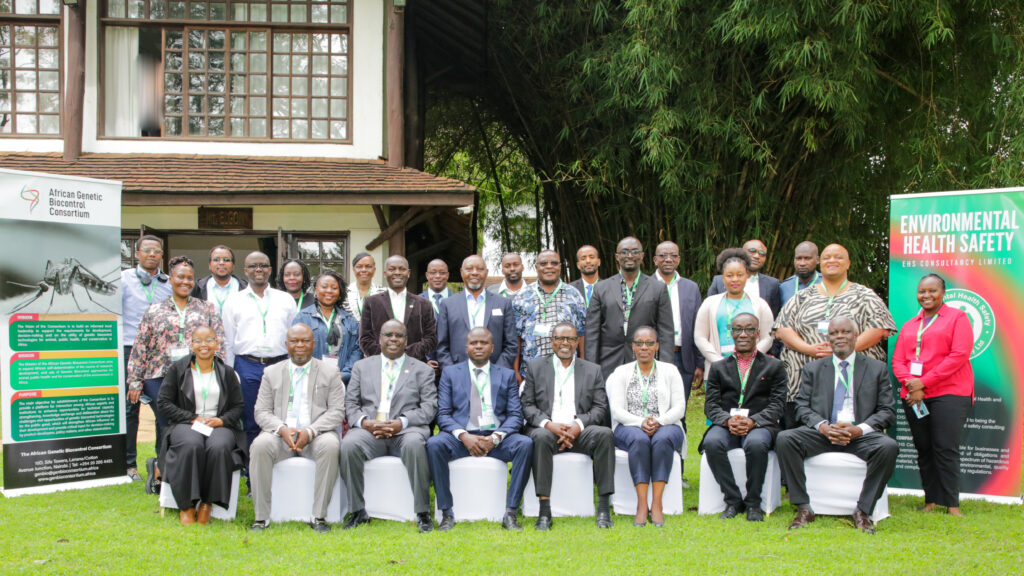
Group photo of participants during the Consultative Workshop
The opening remarks were given by Dr. Roy Mugiira, whose speech officially opened the workshop. Dr. Mugiira indicated that the workshop comes when, as a continent, we need more awareness and capacity building on the process involved during the approval of genetic biocontrol agents. “This workshop will be thought-provoking to learn the perspectives that some of you will bring into these discussions. I sincerely hope that you will enjoy your time during discussions and networking. Thank you for taking part of your valuable time to participate.”
The sessions covered in this consultative workshop included:
- Technical Foundations: UN Convention on Biological Diversity & Emerging Biotechnologies (Gene Drive).
- International frameworks for Biosafety.
- Risk Assessment as a requirement for decision-making processes for genetically modified organisms.
- Tools for decision-making process.
- Post-release monitoring tools for genetic biocontrol products.
Eric Okoree, the CEO of the National Biosafety Authority – Ghana opened proceeding with an overview of UN Convention on Biological Diversity. Kunming-Montreal Global Biodiversity Framework” (GBF) adopted during COP-15, builds on the Strategic Plan for Biodiversity 2011–2020, its achievements, gaps, and lessons learned, and the experience and achievements of other relevant multilateral environmental agreements, sets out an ambitious plan to implement broad-based action to bring about a transformation in our societies’ relationship with biodiversity by 2030, in line with the 2030 Agenda for Sustainable Development and its Sustainable Development Goals, and ensure that, by 2050, the shared vision of living in harmony with nature is fulfilled.
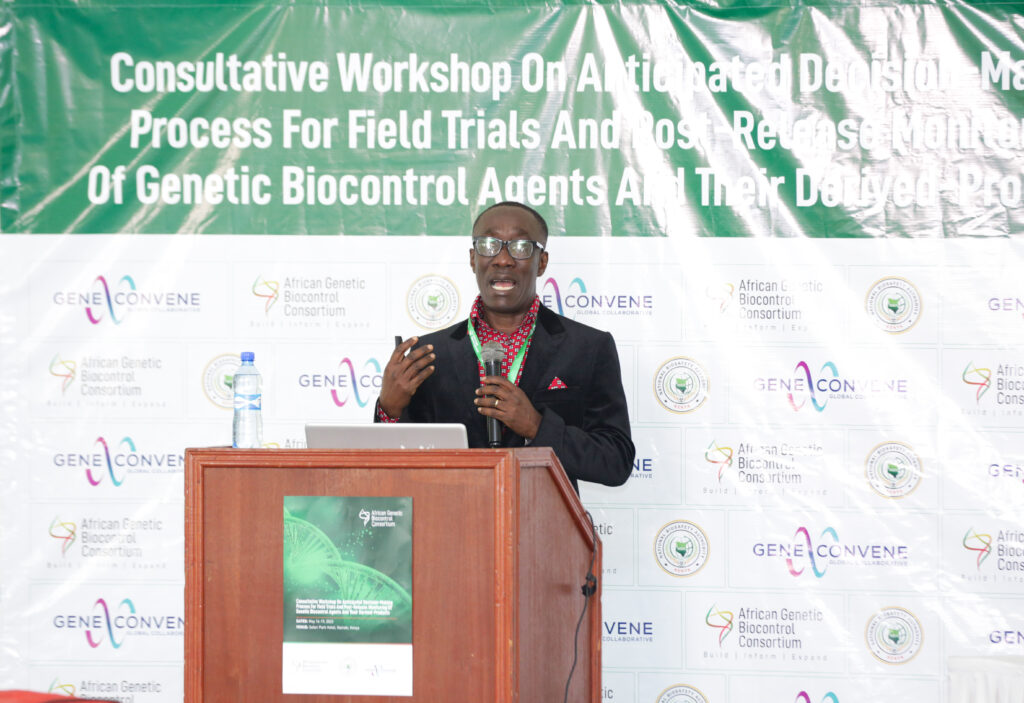
Eric Okoree giving a presentation during the Consultative Workshop in Nairobi, Kenya.
Prof. Charles Mbogo from Pan Africa Mosquito Control Association (PAMCA) gave a talk on “Gene drive technology development for malaria control vector and its status.” His talk centered on whether mosquitoes modified with low threshold gene drive could be developed appropriately for use against malaria, and, if so, the resources and activities needed to ensure safe, ethical and efficient field-testing and implementation. As such, coordination is crucial in development of gene drive for malaria control in Africa through gene drive research forums, standards and best practice guidance, training and capacity strengthening, advice and support (external ecological risk assessment, and frequent engagement.
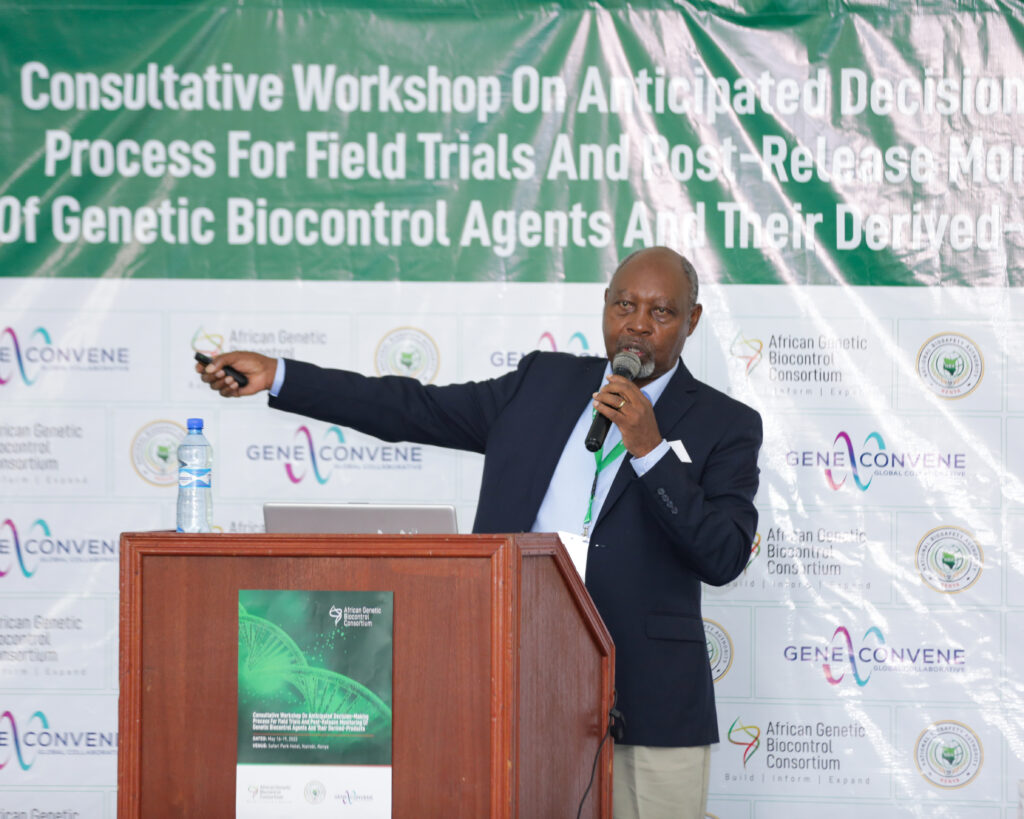

Prof. Charles Mbogo giving a talk during the Consultative Workshop in Nairobi, Kenya.
Lina Finda, a research scientist from the Ifakara Health Institute (IHI) gave a talk on “Stakeholder engagement for gene drive technologies for vector control – African Conversations about gene drives for malaria control and elimination.” Some of the perceived benefits of gene drive modified mosquitoes for malaria control include potential of eliminating malaria, affordability, sustainability, and safety for humans and the environment. However, some of the key concerns of this technology include inadequate local technical expertise, issues of safety, high cost, and issue of acceptability of the technology by local communities. As such, it is imperative to obtain in depth analysis of country specific needs, expectations and opportunities for gene drives for effective malaria control and elimination. Lina reiterated that, “African conversations about gene drives need to be African led by building local capacity, empower key stakeholders, bring onboard local governments, generate local evidence on safety and acceptability, and ensure it meets the local needs for malaria control and elimination.
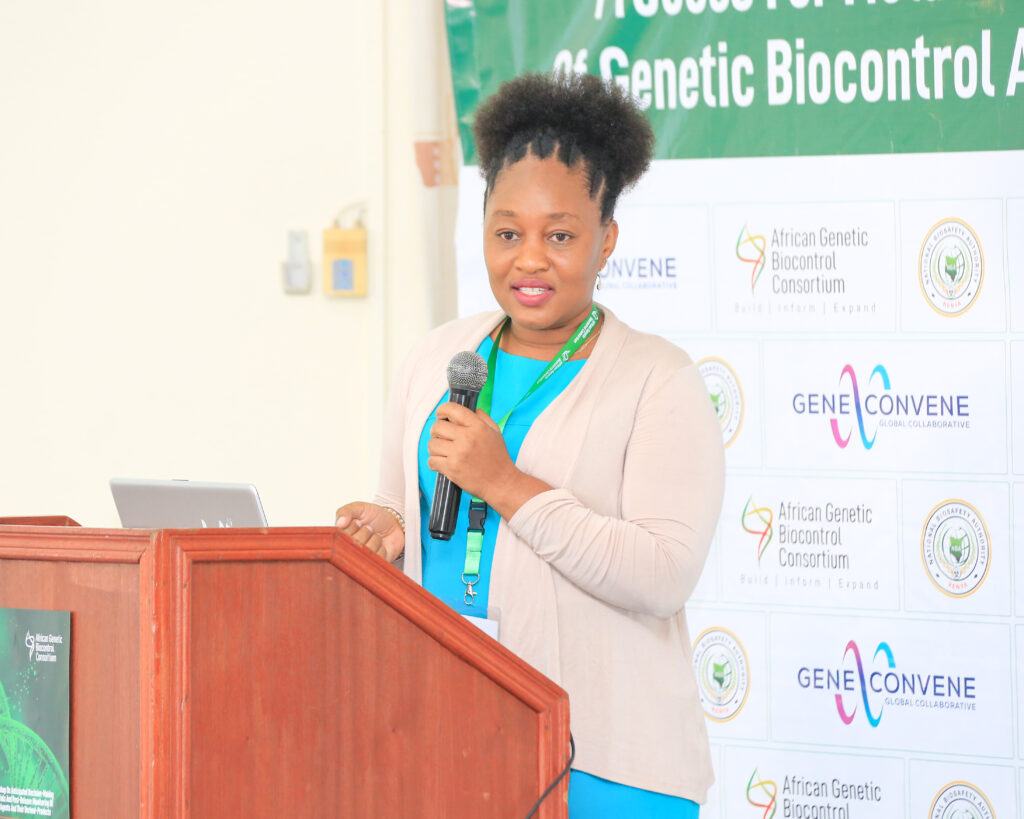

Lina Finda giving a talk during the Consultative Workshop in Nairobi, Kenya.
Interactive group discussions provided workshop participants with an opportunity to review/develop their unique national guidelines, environment risk assessment and other applicable tools, Application Forms, and Standard Operating Procedures (SOPs), that support national oversight on environmental release and commercialization of a genetic biocontrol technologies in their countries.
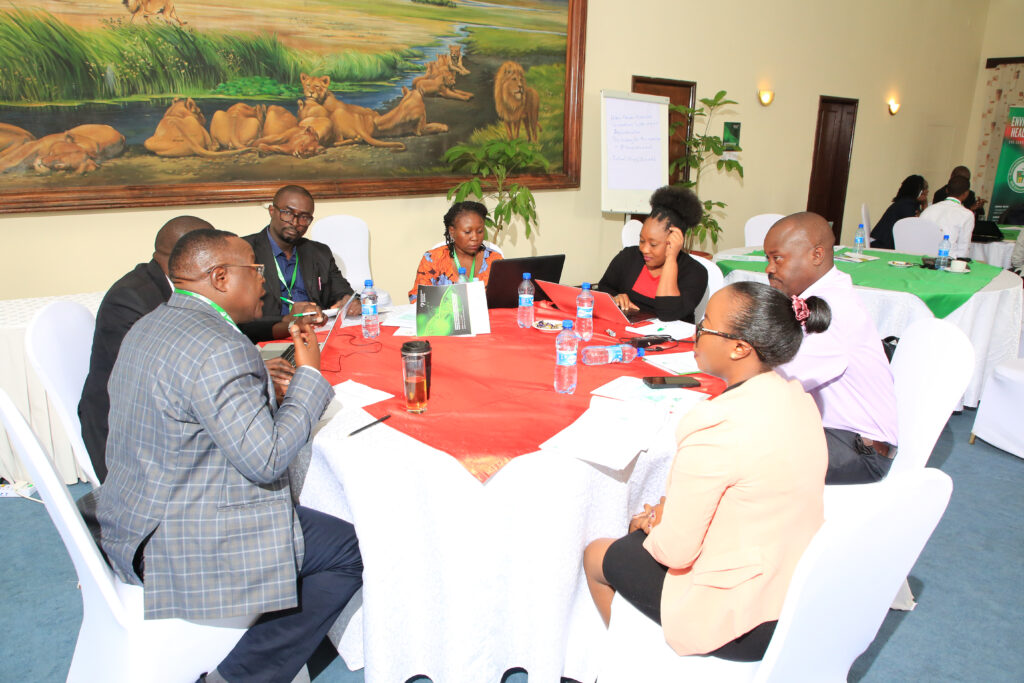

Workshop participants engaged in interactive discussions during group exercises.
Overall, the workshop provided an opportunity for participants to learn technical and regulatory requirements for decision-making of emerging biotechnologies, requirements for stakeholder engagement, review of application dossiers, review/develop institutional and national guidelines that support environmental release of genetic biocontrol technologies, and post-release monitoring of gene drive containing mosquitoes.
